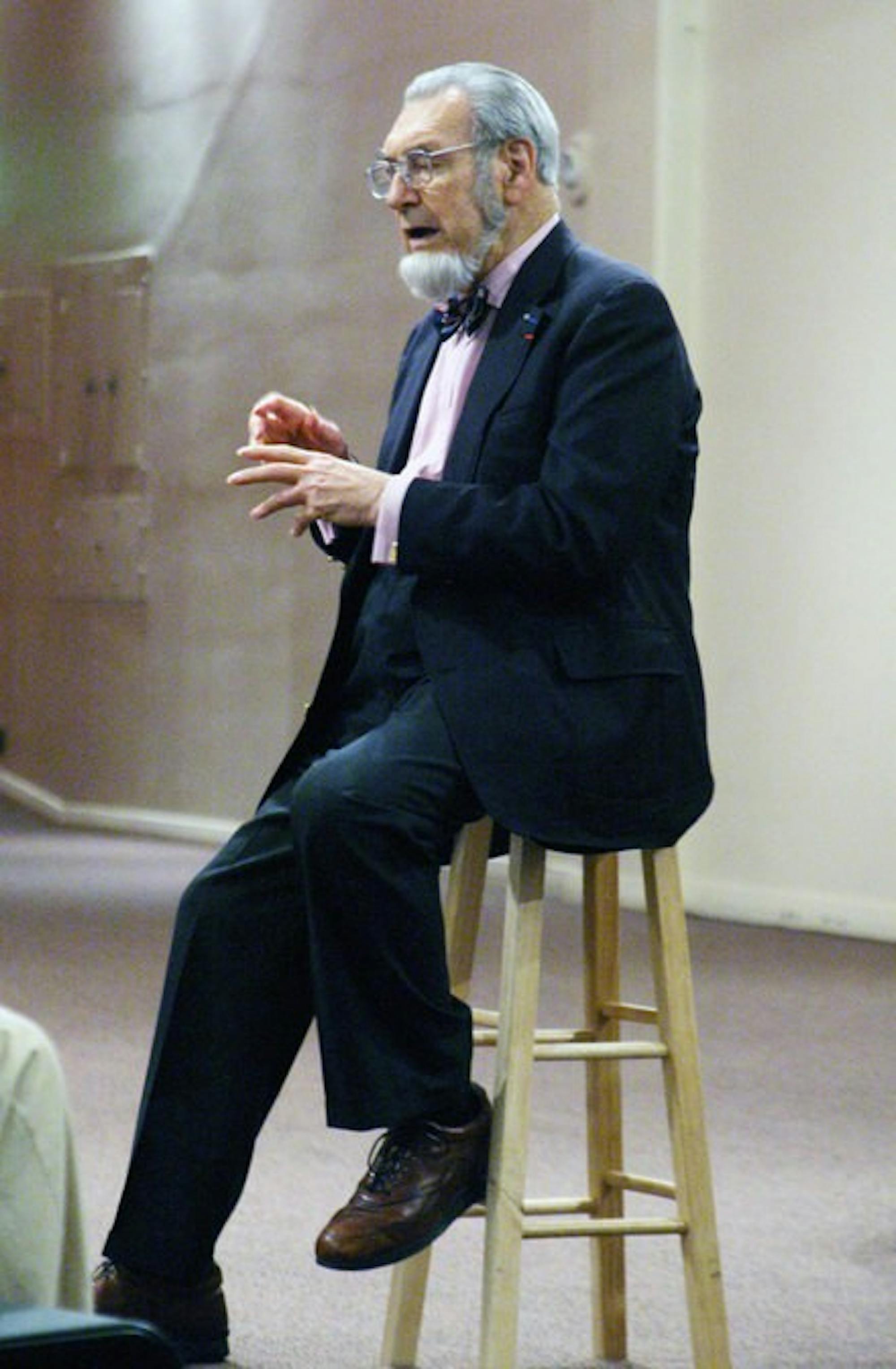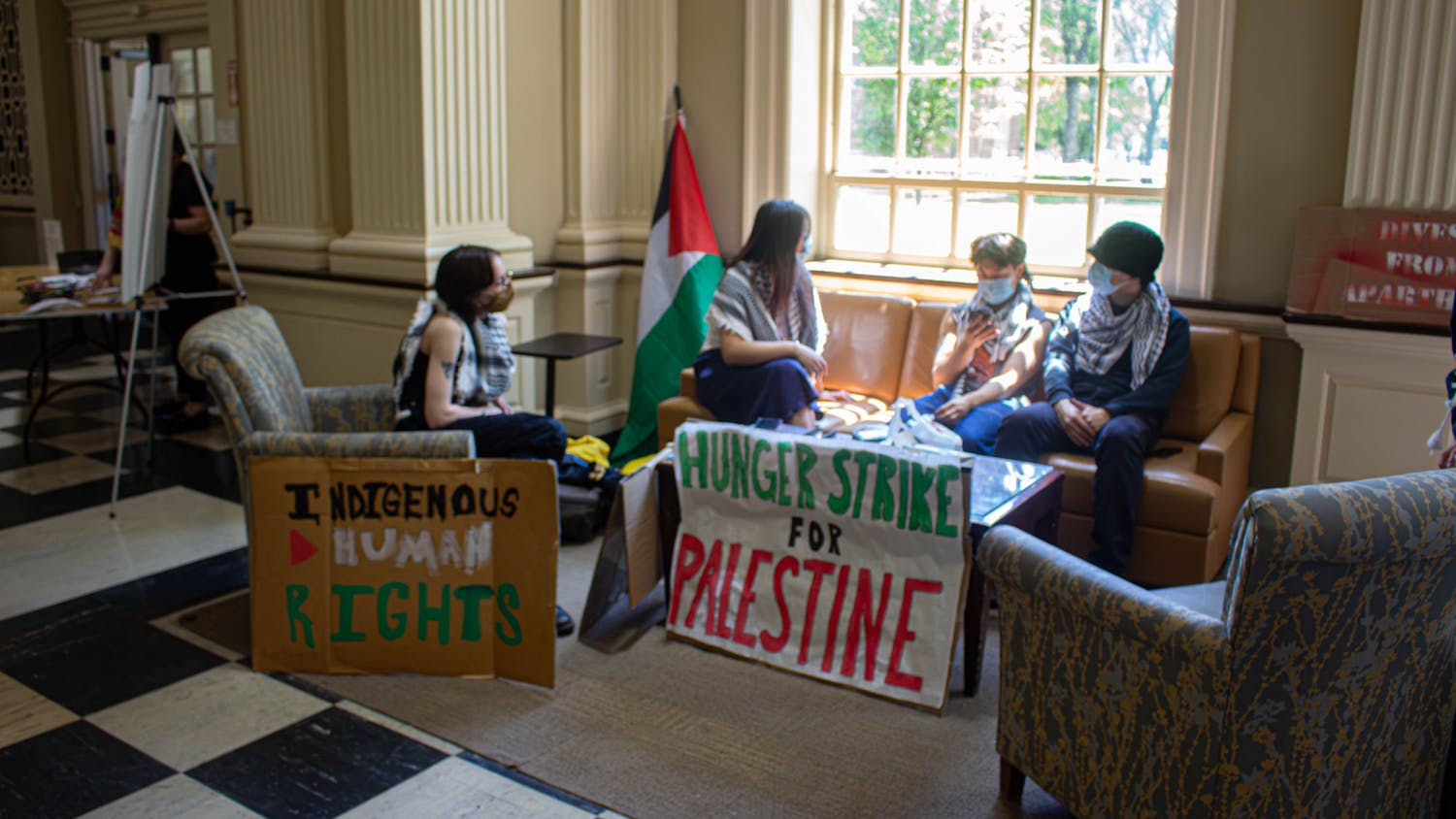Former U.S. Surgeon General C. Everett Koop '37 spoke to students about his early experiences in medicine in a "fireside chat" yesterday at the Top of the Hop.
"You don't know how auspicious an occasion this is," Koop began. "I've been giving these fireside chats for 16 years, and this is the second time we've ever had the fire to go with it."
Koop told three stories about his career as chief surgical resident at the Hospital of the University of Pennsylvania, including those of his first patient death and an emotional experience with the family of a disabled child.
Koop's first story was set during the Second World War, when he worked at the hospital under a doctor who had never lost a patient during a gallbladder surgery, nor had his staff. However, three days after Koop removed the gallbladder of a 40-year-old woman, she died. Instead of blaming her death on his surgery, Koop intuitively diagnosed that a pulmonary embolism had killed her, and set out to operate on her again.
"Never in my life had I opened a chest before," Koop said. "I cut down through four ribs and opened up the heart, with no gloves, nothing sterile. I can't explain to you the fear that I felt that I would go down in history as the first guy who lost [his supervisor] a gallbladder."
Koop was able to resuscitate the heart and then went on to squirt penicillin into the incision in order to decontaminate it but then the heart stopped again. He quickly realized that the serum was actually penicillin-potassium, and that an overdose of the second element had caused the woman's heart to stop.
Instead of firing him, though, his supervisor surprised Koop by complimenting his work.
"He said to the staff later, 'One of our residents was intrepid enough to open that heart and take out that clot " that's how we train surgeons at Penn.'"
Koop spent much of the chat on his last story, which stressed his respect for the families of disabled children.
"When people ask me, 'What's the most important thing you did as Surgeon General?,' I say that I made it possible to change the wording of Title V of the Social Security Act, which now guarantees to all children a coordinated, comprehensive, family-oriented, community-based sense of care."
Koop saw many families with disabled children during his time as a pediatric surgeon, including a family with a child suffering from a serious arteriovenous fistula, which Koop described as an abnormal opening between an artery and a vein. The fistula causes blood to pool within a mass of arteries and veins, which leads to severe pain.
"The boy walked into my office holding his right arm up," he said, demonstrating the child's motion. "It was as big as my waist."
While other hospitals refused to operate on such a high-risk case, Koop was willing to do anything to comfort the child, so he amputated the boy's arm. Nevertheless, a few years later, the boy had to undergo another surgery, and despite Koop's efforts, the boy died during surgery.
Koop explained that he was moved by the man's unconditional love for his son when he showed the boy's body to his father, who said, "He never gave us a minute's trouble."
Koop closed by encouraging the students in his audience, many of whom intend to enter the medical field, to keep the right goals in mind.
"I urge you not to be upset by the things you hear in politics, but to press on and join the scientific and the humanitarian side," he said. "You'll be able to say, 'I had the opportunity to do something good for everyone I met today.' There is no greater goal."




